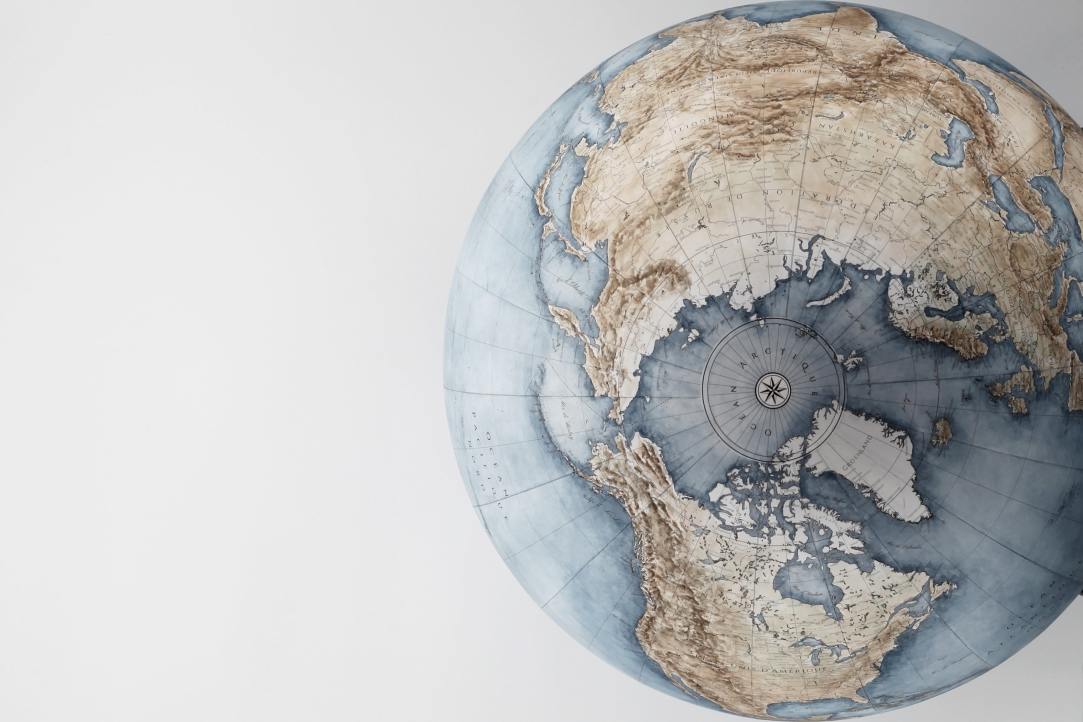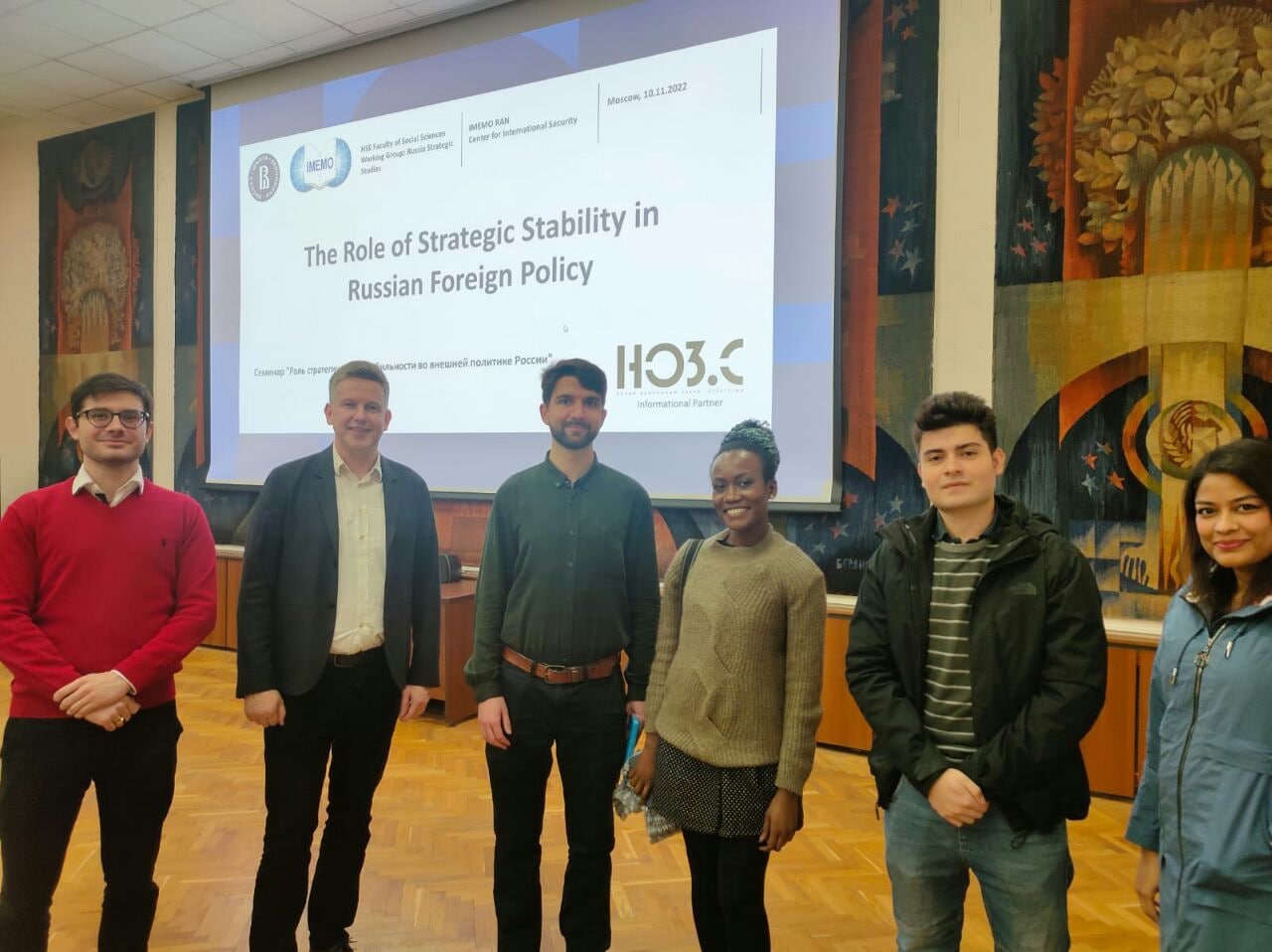The Role of Strategic Stability in Russian Foreign Policy

The main speaker of the research seminar was Aleksey Georgievich Arbatov, head of the Center for International Security (CMB) of the IMEMO RAS and one of the adherents of strategic stability in the world. The seminar was chaired by one of the leading experts in the field of strategic stability and arms control, researcher at IMEMO RAS Dmitry Viktorovich Stefanovich. On behalf of the Russia Strategic Studies Working Group (HSE), the expert panel included prof. Iain Ferguson (WG leader) and Artem Maltsev (WG coordinator). The seminar was held in the format of an international panel discussion with the participation of a wide range of applied experts and fundamental researchers, including Gleb Makarevich (IMEMO RAS), Alexander Chekov (IMI MGIMO), Oleg Krivolapov (ISKRAN), Pavel Gudev (IMEMO RAS) Olga Malinova (HSE University), Pavel Devyatkin (HSE University) and others.
The seminar was also attended by international colleagues: prof. Angela Stent, (Georgetown University), prof. Richard Sakwa (HSE University), prof. Andrej Krickovic (HSE University), prof. David Lewis (University of Exeter) and prof. Vyacheslav Morozov (University of Tartu) and others.
The following questions have been on the agenda:
1) What approaches to the conceptualization and definition of strategic stability are relevant for its study in the broader context of IR?
2) How prominent is the concept of strategic stability among the Russian political establishment and, in particular, among "decision makers"? Is it popular outside the immediate circle of experts and diplomats directly involved in arms control negotiations?
3) If we consider the concept of strategic stability in the narrow context of nuclear deterrence and arms control, how autonomous is this agenda from other key areas and issues of contemporary Russian foreign policy?
4) Methodologically - how should we explore the discourse on strategic stability in the foreign policy of the Russian Federation? Who are the key “policy-makers” and “policy-shapers”?
The main speaker of the seminar, Alexei Georgievich Arbatov, presented a brief report on the issues raised. This was followed by an open discussion in the Q&A format with the active participation of HSE students from the BA and MA programs "Political Science" and "Politics, Economics, Philosophy".

